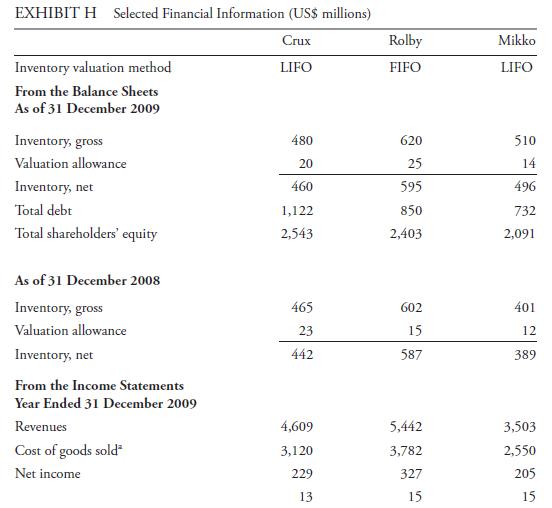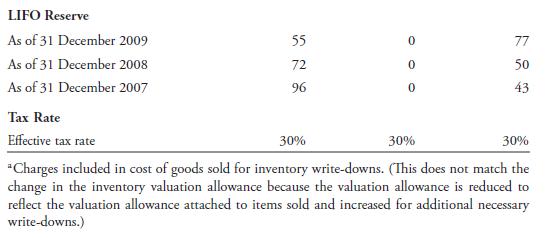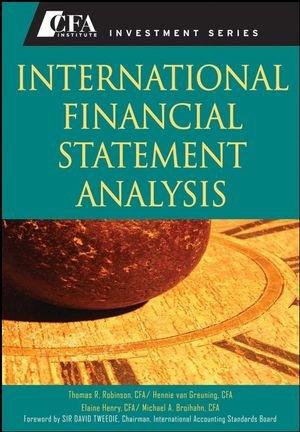The best answer to Borghis Question 2 is: A. stable. B. inflationary. C. deflationary. Robert Groff ,
Question:
The best answer to Borghi’s Question 2 is:
A. stable.
B. inflationary.
C. deflationary.
Robert Groff , an equity analyst, is preparing a report on Crux Corp. As part of his report, Groff makes a comparative financial analysis between Crux and its two main competitors, Rolby Corp. and Mikko Inc. Crux and Mikko report under U.S. GAAP and Rolby reports under IFRS.
Groff gathers information on Crux, Rolby, and Mikko. The relevant financial information he compiles is in Exhibit H. Some information on the industry is in Exhibit I.



To compare the financial performance of the three companies, Groff decides to convert LIFO figures into FIFO figures, and adjust figures to assume no valuation allowance is recognized by any company.
After reading Groff ’s draft report, his supervisor, Rachel Borghi, asks him the following questions:
Question 1: Which company’s gross profit margin would best reflect current costs of the industry?
Question 2: Would Rolby’s valuation method show a higher gross profit margin than Crux’s under an inflationary, a deflationary, or a stable price scenario?
Question 3: Which group of ratios usually appears more favorable with an inventory write- down?
Step by Step Answer:

International Financial Statement Analysis CFA Institute Investment Series
ISBN: 9780470287668
1st Edition
Authors: Thomas R. Robinson, Hennie Van Greuning CFA, Elaine Henry, Michael A. Broihahn, Sir David Tweedie





